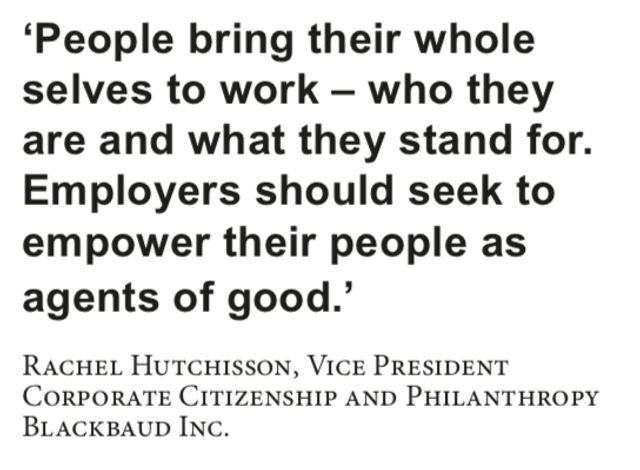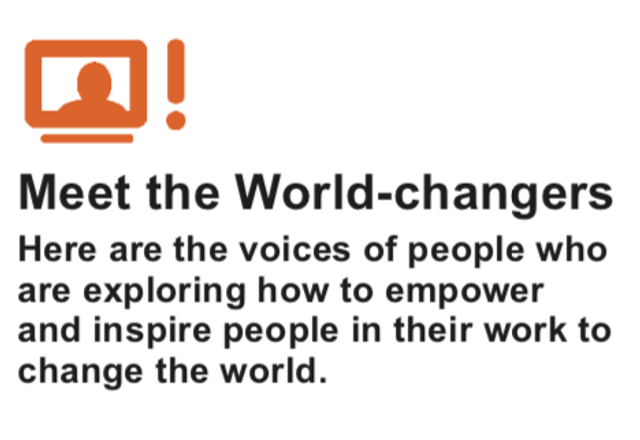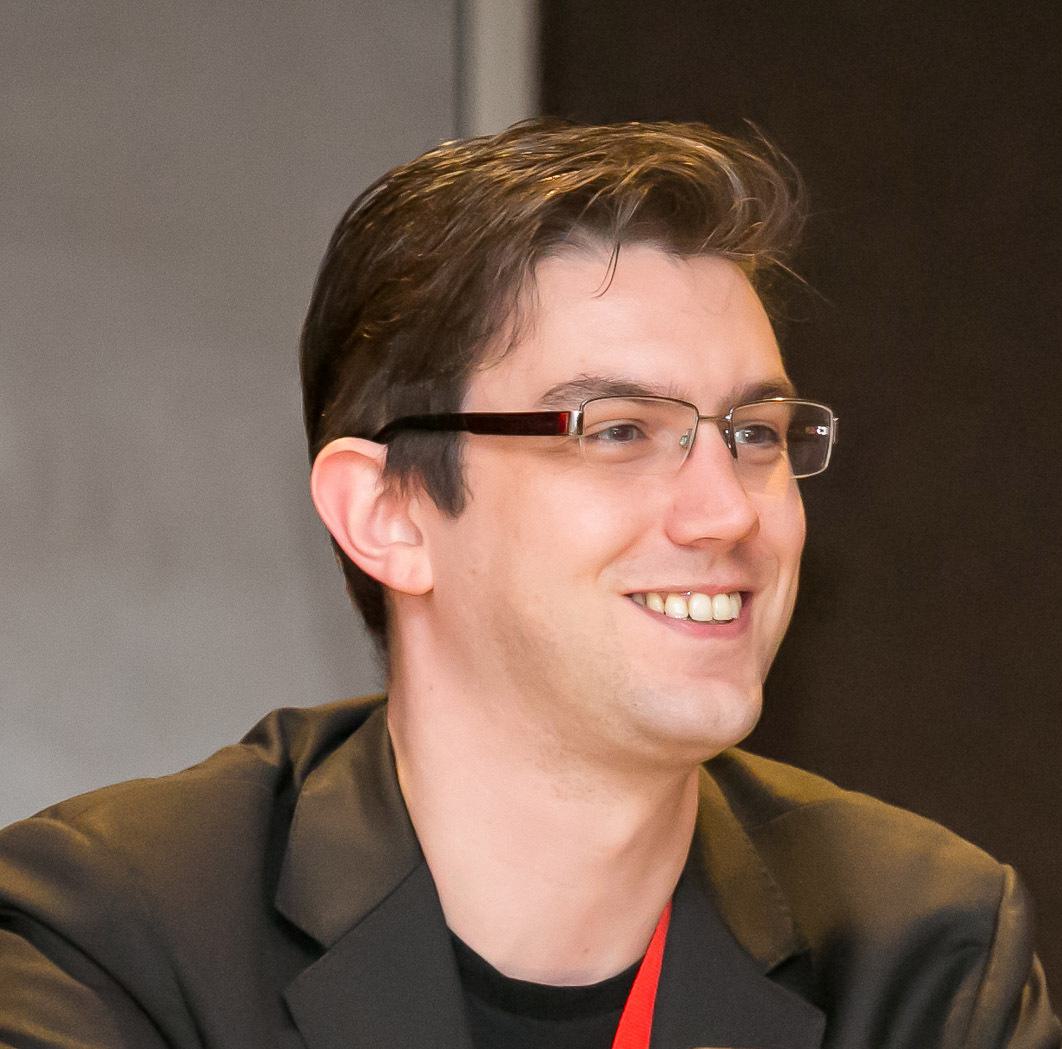Meet the world-changers — from the fundraising frontline: an interview with Jiblu Rahman
We meet Jiblu Rahman, marketing coordinator at Islamic Relief and star of their ‘Saving lives isn’t easy’ video ad, to discuss the making of this unique campaign and how being a fundraiser is a path for him to make a difference.
- Written by
- Joe Burnett
- Added
- February 28, 2019
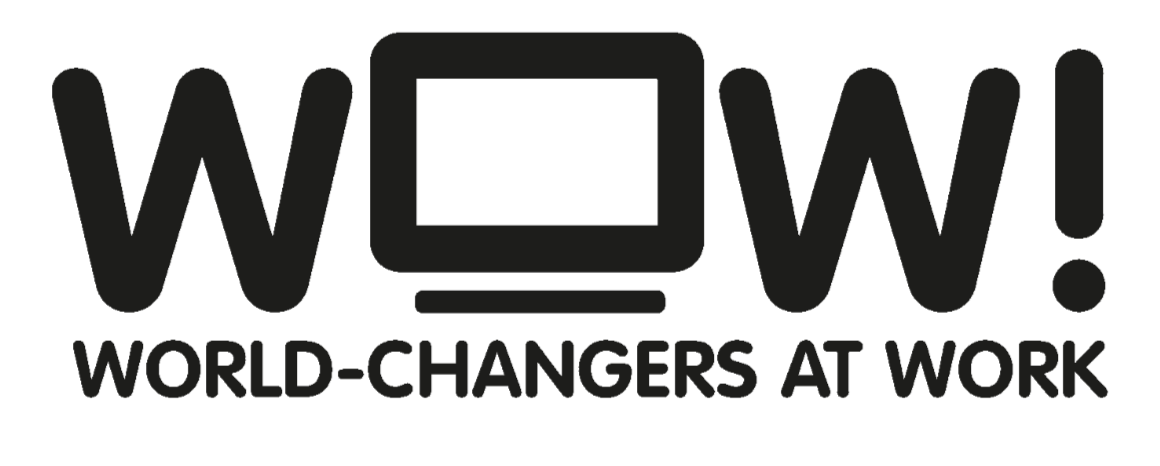
Jiblu Rahman is marketing coordinator for Islamic Relief, a young fundraiser. And for us at SOFII, as you can read here, he’s a superstar. For Islamic Relief’s ‘Saving Lives Isn’t Easy’ Ramadan campaign, Jiblu took up his acting gloves and delivered a funny and endearing performance in an ad that in a few short minutes demonstrated exactly why charitable organisations are necessary. SOFII caught up with Jiblu at Islamic Relief’s offices to discuss his journey into fundraising and how this remarkable campaign came about.
Here’s the video ad that so impressed us here at SOFII. We think you’ll agree that it’s great and contains an important message amid the humour.

When I first saw Islamic Relief’s ‘Saving lives isn’t easy’ TV ad I assumed the person playing Yusuf the wannabe one-man life-saver was an actor, so imagine my surprise when I learned that he was played by a young fundraiser named Jiblu working in the marketing department at the charity’s office near Waterloo in London. Sitting opposite this quiet and modest man, I initially struggled to reconcile him with the future Oscar-winner (in my mind) from the TV ad. And then we got into the detail of how he came to work for Islamic Relief and how the campaign came about and Jiblu’s passion and understated sense of humour rose to the fore. He’s definitely still a star in the making.
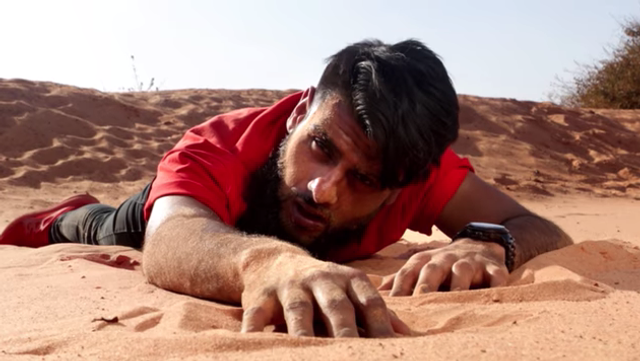
‘I actually put myself forward for the role’ says Jiblu Rahman as we sit around a conference room table at Islamic Relief’s office in London. Given his charismatic and hilarious performance in the ‘Saving lives isn’t easy’ ad, it’s sort of the answer one would expect, except Jiblu is far from a cocky attention-seeker like most aspiring actors. He’s softly spoken, modest and thoughtful and comes across as someone who would run a mile rather than appear on camera.
‘[Simply because] there were just three guys and a camera and we had just six days to shoot. And I knew our creative director wanted someone who would give 110 per cent. It was a very, very, very difficult shoot. It was in Niger, it was 42 degrees. At times I thought I was going to faint. During the end shot, when I'm lying on the ground, the sand was actually burning my skin. I had to put water on the sand and within seconds it would dry up. So I had to keep doing that, shot after shot after shot.’
Anyone who has ever been on a film shoot will attest to the monotony of multiple shots, but few will have had to do them in such conditions. Jiblu talks with humour and self-deprecation about the actual shooting of the ad, peppering his recollections with such anecdotes but it’s when we get to the core message of the campaign that his real passion shines through. When he jokes that he’s a boring person who doesn’t leave the postcode where he works, it makes me laugh but I also feel he’s underselling himself, as his articulate explanation of the need for organisations like Islamic Relief proves.
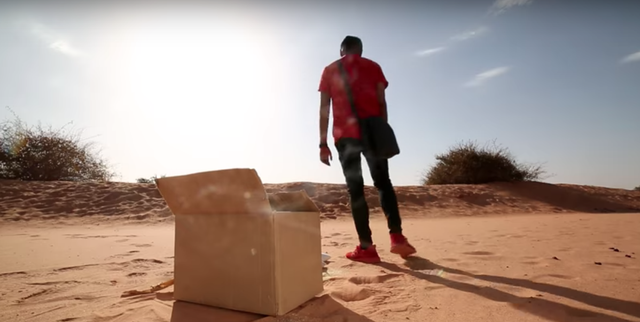
Any fundraiser will tell you that perhaps the most annoying question/complaint/accusation (delete as applicable) people throw at you (and all aid organisations) is ‘why do you get paid money to do this when you could just volunteer, not take a salary and channel all the money towards the beneficiaries?’ And it’s this well-meaning (except when it comes from the Daily Mail) misconception that ‘Saving lives isn’t easy’ addresses, as Jiblu elaborates:
‘The concept behind it was that, especially in the Muslim charities sector, you see guys that are going solo. If I'm on Facebook -and I've seen this multiple times- I'll see guys posting: "I'm going to Syria next week with an aid convoy. If anyone wants to donate any food or blankets or money, you can trust me. Don’t trust the large charities because you don’t know how the money is spent." So it was mainly to challenge that concept, to show that with these people who are going out on a solo mission, we don’t know what procedures or what practices they have in place to ensure they’re following the right processes and method. We wanted to highlight that there are many organisations, like Islamic Relief, who have the local and cultural knowledge and the framework, resources and structure to ensure that your money is going towards the end beneficiary and not just to a food pack.’
He goes on:
‘We don’t just think about giving someone a food pack that will last a month and then after a month they’ll still be in need, it’s about putting a framework there where beneficiaries can get up on their feet and allow them to help themselves. So it was mainly to challenge that whole scenario but we tried to do it in a way that was a bit tongue in cheek that would appeal to a wide range of audiences but mainly to a younger target audience who are a bit more clued-on, who do their research before donating and want to know where their money is being spent. As they should. If you’re donating money to a charity you should want to know how that money is being spent and the impact it’s making. We wanted to do that in a humorous kind of way and make it relatable.’
Ironically, the experience of making the film opened Jiblu’s eyes to just how hard it is to go out on one’s own to donate aid. ‘It’s not easy’ he says with what I discover is characteristic understatement,
‘it is very, very difficult. There are numerous security risks and concerns. Another factor that people don’t take into consideration is child protection. Established aid agencies have child protection policies in place you can refer to if you're dealing with a child. And you also know about the cultural sensitivities because you have local people hired in your local offices to tell you how you should go about things.’
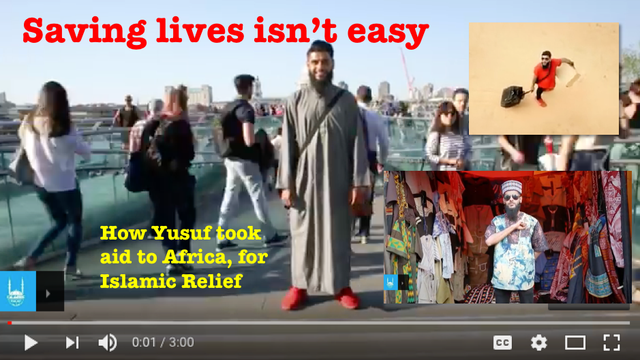
As with so many great campaigns, ‘Saving lives isn’t easy’ came from the germ of an idea and blossomed. As Jiblu recalls,
‘It was about eight or nine months before the video went live and our creative director, who leads on our bigger campaigns like the Ramadan ones, came up to me at a leaving do as I was cutting my chicken and whispered to me "What do you think about this idea?". I remember dropping my cutlery and saying "Wow! This is amazing!"’.
As he later recalls the shoot he shows similar enthusiasm (‘It was fun and to see the end product [was amazing]’) but he returns to the core message of the ad with just as much enthusiasm.
'We were picking up on volunteerism. A lot of volunteers go out and take selfies with beneficiaries. In their minds, they’re there to make a difference, however it’s not having the desired impact that they’d like or hope it would have. It was mainly to highlight the role that established aid agencies play and why we’re here: it’s so you don’t have to do that. We’re here to do what donors can’t.’
I can’t think of a more concise way to explain a charity’s raison d’être than that.
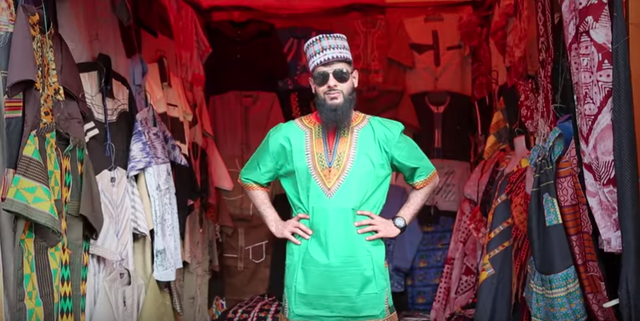
Trying to coax Jiblu’s inner actor out is a fun challenge in and of itself. When I say he’s a natural, he blushes slightly and broadens the conversation out to his colleagues.
‘I'm not one to be on camera. But I was happy because as a team going out there we just worked really well together. We knew what we needed to do and it was nice to see the reaction we got from peers within the sector and on social media. It was being shared on WhatsApp groups, going viral on the Monday after we launched. So that showed that it got the reach that we hoped it would. It was a good way to get Islamic Relief’s brand out there.’
When I ask him if there’s a slight autobiographical side to the ad, even if he has never considered going off on his own to Niger, he nods and explains why getting into fundraising mattered to him:
‘Definitely. The reason I joined Islamic Relief is because I didn’t want a mundane job. Previous to Islamic Relief I worked in the City in a very corporate environment. I wanted something more. I wanted a double benefit where I’m working and receiving an income but I’m also making a difference. A lot of people do that by volunteering but I’m very fortunate and very blessed that I work here. My nine-to-five work is making some sort of impact on people’s lives.’
He’s equally passionate about the benefit of going out to the field to see the impact of what an organisation does:
‘Your job as a fundraiser is to relay the story of the beneficiaries to the masses. You need to tell the story of the people you’re helping. I’m fortunate: I’ve been to Somaliland, Niger and India and I can tell those stories in my fundraising. Of course it’s not feasible, for financial reasons, for all or even most organisations but where it is I would highly recommend for fundraisers to go out and experience the impact that aid is making. It completely realigns your motivation and it humanises the beneficiaries.’
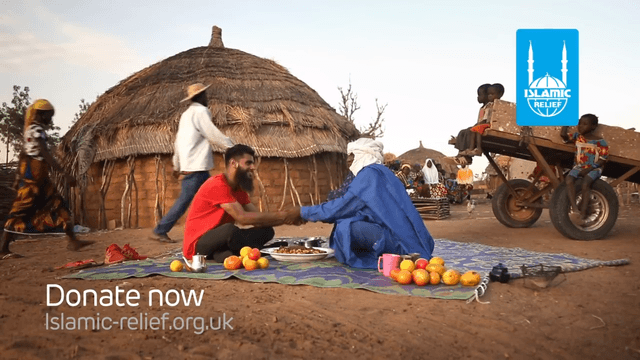
Jiblu is understandably coy when I ask if another video is in the offing but doesn’t rule it out.
‘We feel like the video was such a success that if we were to do a follow-up it will need to be properly thought-out. We don’t want to dampen the impact of the first video. When people ask me I use the Rocky analogy (laughs). After Rocky IV they were just making films for the sake of it and it dampens all the previous Rocky movies. If we have the right kind of content then I’m fully up for it but I don’t think we’d do it just for the sake of it.’
As the interview winds down, I ask Jiblu about whether or not, in these troubled times and as a young person, he has a sense that his generation can change the world and want to make a difference. Again, his face lights up with the passion that hides under his understated exterior.
‘Definitely! I remember talking to classmates and friends when I graduated and we all agreed that just working a nine-to-five in the corporate sector won’t give you the same fulfilment as if you’re doing something that makes a difference. Deep down, I think people yearn for something more, to have a positive impact on the world. And I notice it more and more, when I talk to my younger cousins and people starting out in work. And at every level of an organisation like Islamic Relief, even if you’re working on the door or in the post department, you might not be meeting beneficiaries directly, but you’re making a difference.’
Are you a young fundraiser working on great campaigns like Jiblu and hoping to change the world through what you do? Or are you a grizzled veteran still making a difference with your experience and know-how? Please share your stories like the one above with us, either by commenting below or e-mailing joe@sofii.org.


